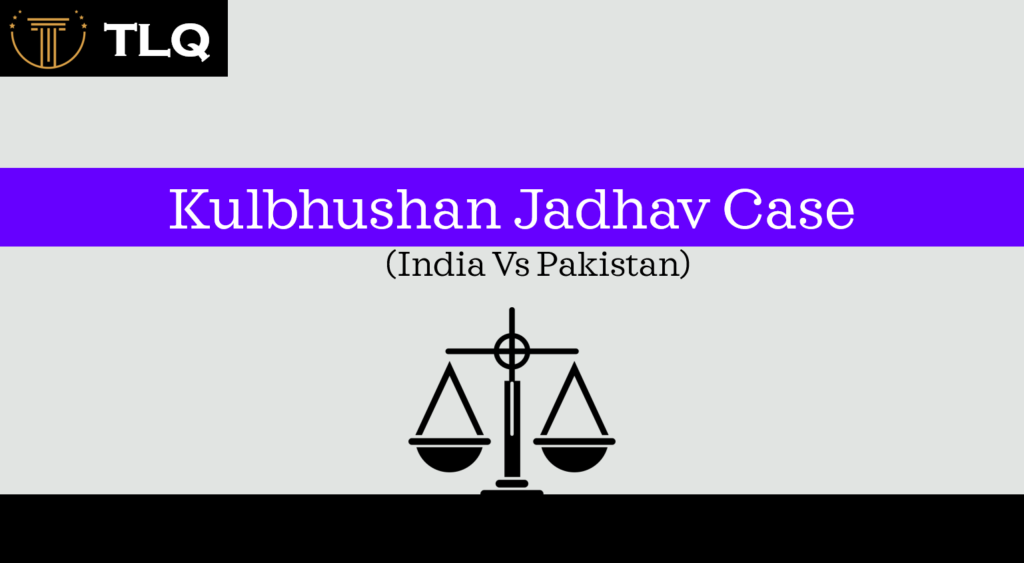Published On: 8th September, 2024
Authored By: Liam Vas
Govind Ramnath Kare College Of Law, Goa.
Interfaith marriages, where individuals from different religious backgrounds come together in matrimony, highlight the blend of personal freedom, cultural diversity, and legal complexities. In India, a nation with a rich array of religions and traditions, interfaith marriages often spark significant social and legal discussions. This article delves into the legal structure governing interfaith marriages in India, the hurdles faced by interfaith couples, and the societal attitudes towards these unions.
India offers several legal avenues for solemnizing interfaith marriages, ensuring individuals can marry across religious lines while retaining their personal freedoms. The primary legal provisions include the Special Marriage Act, 1954, and the personal laws that govern different religious communities.
The Special Marriage Act (SMA) is a secular law enabling individuals of different religions or nationalities to marry without needing to convert to each other’s faith. The SMA provides a comprehensive legal framework for the registration and solemnization of marriages, ensuring such unions receive legal recognition and protection.
Key Provisions of the Special Marriage Act:
- Notice of Intended Marriage: Couples planning to marry under the SMA must give a 30-day notice to the Marriage Registrar in the district where at least one partner has resided.
- Publication of Notice: The notice is publicly displayed at the Marriage Registrar’s office, inviting objections.
- Objections to Marriage: Any objections must be resolved within 30 days. Valid objections typically relate to the age of the parties, existing marital status, prohibited degrees of relationship, or mental incapacity.
- Solemnization of Marriage: If no objections are upheld, the marriage can be solemnized in the presence of three witnesses and the Marriage Registrar.
- Registration of Marriage: Following the ceremony, the marriage is registered, providing legal recognition and documentation.
Apart from the SMA, various personal laws govern marriages within specific religious communities, such as Hindu, Muslim, Christian, and Parsi laws. While these laws primarily address intra-faith marriages, they also provide some provisions for interfaith unions.
Hindu Marriage Act, 1955: Applicable to Hindus, Buddhists, Jains, and Sikhs, this act does not explicitly cover interfaith marriages. However, if one party converts to Hinduism, the marriage can be solemnized under this act.
Muslim Personal Law (Shariat) Application Act, 1937: Islamic law permits Muslim men to marry non-Muslim women from ‘People of the Book’ (i.e., Christians and Jews). However, Muslim women are generally expected to marry within the faith, and any deviation often requires conversion.
Christian Marriage Act, 1872: This act governs marriages involving at least one Christian party. It allows for interfaith marriages but typically requires non-Christian parties to convert to Christianity for the marriage to be solemnized within the church.
Parsi Marriage and Divorce Act, 1936: Parsis typically marry within their community. Interfaith marriages involving Parsis are less common and often fall outside the purview of this act unless the non-Parsi party converts.
Interfaith couples in India face numerous challenges stemming from legal, social, and familial opposition. These challenges can impact their decision to marry, their marital life, and their interactions with society.
Legal Challenges
- Lengthy Procedures under the SMA: The 30-day notice period under the SMA can expose couples to societal scrutiny and harassment, often discouraging them from pursuing this legal route.
- Objections and Interference: Public display of marriage notices invites objections, sometimes leading to unwarranted interference by community members or authorities.
- Jurisdictional Issues: Couples residing in different districts may face jurisdictional hurdles, complicating the registration process.
- Inconsistent Legal Support: In some cases, local authorities or police may be unsupportive, reflecting societal biases against interfaith marriages.
Interfaith marriages in India face significant social and familial hurdles that can profoundly affect couples. Families often oppose these marriages, fearing they may undermine cultural or religious traditions. This opposition can range from vocal disapproval to active attempts to obstruct or disrupt the union. Interfaith couples may also encounter backlash from their communities, including exclusion, social ostracism, and occasionally threats, particularly in conservative or tightly-knit settings where traditional norms hold sway.
There is often pressure on one or both partners to convert to their spouse’s religion to gain acceptance, adding strain as individuals navigate between familial expectations and personal beliefs. Legal and practical challenges, such as disputes over child-rearing practices and inheritance rights, frequently arise. These issues can escalate, especially when family members dispute the legitimacy of a spouse’s claims to assets or property based on their religious background. Addressing these complexities requires legal frameworks and societal attitudes that uphold individual rights and accommodate the diverse cultural and religious landscape of modern India.
Indian society’s views on interfaith marriages are shaped by cultural, religious, and regional factors. While urbanization and globalization have fostered greater acceptance in some areas, traditional and conservative mindsets continue to dominate in many regions.
The divide between urban and rural areas in India significantly shapes the acceptance and challenges of interfaith marriages. In metropolitan cities, such marriages tend to be more accepted due to a liberal and progressive mindset fostered by higher levels of education, economic independence, and exposure to diverse cultures. Urban dwellers often embrace a broader worldview that values personal choice and individual rights, mitigating some of the societal pressures against interfaith unions.
Conversely, rural settings maintain strong adherence to traditional values and close-knit community structures. Here, intra-faith marriages are the norm, and interfaith unions are rare and often face significant challenges. Traditional beliefs and social norms play a pivotal role in shaping attitudes towards marriage, placing greater emphasis on preserving cultural and religious identities within the community. As a result, couples contemplating interfaith marriages in rural areas may encounter strong resistance from families and communities, leading to social ostracism, exclusion, and even coercion to conform to established norms. This urban-rural dichotomy underscores the complexity of navigating cultural diversity and societal expectations regarding marriage across different regions of India.
Religious Perspectives
– Hinduism: While Hinduism is inherently pluralistic, interfaith marriages can still be contentious, particularly among orthodox segments. Concerns about preserving religious and cultural heritage often lead to resistance.
– Islam: Islamic law permits interfaith marriages under specific conditions, but societal acceptance varies. Conservative views may lead to opposition, particularly regarding marriages involving Muslim women and non-Muslim men.
– Christianity: Interfaith marriages are generally accepted within the Christian community, especially if the non-Christian partner converts. However, traditional segments may still resist.
– Sikhism, Jainism, and Buddhism: These religions, like Hinduism, exhibit varying degrees of acceptance, with urban and educated adherents generally being more open to interfaith unions.
Indian judiciary has played a crucial role in upholding the rights of interfaith couples and addressing societal prejudices. Several landmark cases highlight the judicial approach to interfaith marriages.
Smt. Sarla Mudgal v. Union of India (1995)
This case dealt with the issue of conversion to Islam for the purpose of contracting a second marriage. The Supreme Court held that mere conversion to Islam does not dissolve the first marriage under Hindu law, and contracting a second marriage without legally dissolving the first constitutes bigamy. The judgment emphasized the need for a uniform civil code to address such issues.
Lata Singh v. State of Uttar Pradesh (2006)
Lata Singh, a Hindu woman, married a Muslim man against her family’s wishes. The Supreme Court affirmed her right to marry a person of her choice and live with him, emphasizing that inter-caste and inter-religious marriages are protected under the Constitution. The Court directed authorities to protect such couples from harassment and ensure their safety.
Shafin Jahan v. Asokan K.M. (Hadiya Case, 2018)
This case involved the marriage of Hadiya, a Hindu woman who converted to Islam and married a Muslim man, Shafin Jahan. Her father challenged the marriage, alleging forcible conversion. The Supreme Court upheld Hadiya’s right to marry and convert of her own free will, reiterating that adults have the right to make personal choices without undue interference.
Interfaith marriages in India are a testament to the country’s diversity and the individual’s right to choose their life partner. While the legal framework, particularly the Special Marriage Act, provides a robust mechanism for solemnizing such marriages, societal acceptance remains a significant challenge. The judiciary has consistently upheld the rights of interfaith couples, emphasizing personal liberty and constitutional protections.
However, the journey towards complete acceptance of interfaith marriages requires ongoing efforts to address societal prejudices, enhance legal support, and promote awareness about individual rights. As India continues to evolve, the hope is that interfaith marriages will be celebrated as a symbol of unity in diversity, reflecting the true spirit of the Indian Constitution.
Reference(s):
- Inside the Struggle of Inter-Faith Couples in India, FairPlanet (July 3, 2023), https://www.fairplanet.org/story/inside-the-struggle-of-inter-faith-couples-in-india/#:~:text=India’s%20Special%20Marriage%20Act%3A%20%22When,of%20their%20religion%20or%20caste.
- Why Interfaith Marriage in India is Getting Dangerous, Deutsche Welle (Jan. 12, 2023), https://www.google.com/amp/s/amp.dw.com/en/why-interfaith-marriage-in-india-is-getting-dangerous/a-64350804.
- Religious Segregation, Pew Research Center (June 29, 2021), https://www.pewresearch.org/religion/2021/06/29/religious-segregation/.
- Aishwarya Sandeep, Interfaith Marriages in India: Legal Challenges and Solutions, Aishwarya Sandeep (July 15, 2021), https://aishwaryasandeep.in/interfaith-marriages-in-india-legal-challenges-and-solutions-2/.



